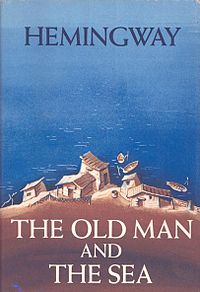narrative
mr alexander bonaparte cust came out with the rest of the audience from the torquay palladium, where he had been seeing and hearing that highly emotional film, not a sparrow…
he blinked a little as he came out into the afternoon sunshine and peered round him in that lost-dog fashion that was characteristic of him.
he murmured to himself: ‘it’s an idea…’
newsboys passed along crying out:
‘latest…homicidal maniac at churston…’
they carried placards on which was written:
churstonmurder. latest
mr cust fumbled in his pocket, found a coin, and bought a paper. he did not open it at once.
entering the princess gardens, he slowly made hisway to a shelter facing torquay harbour. he sat down and opened the paper.
there were big headlines:
sir carmichael clarke murdered.
terrible tragedy at churston.
work of a homicidal maniac.
and below them:
only a month ago england was shocked and startled by the murder of a young girl, elizabeth barnard, at bexhill. it may be remembered that an a b c railway guide figured in the case. an a b c was also found by the dead body of sir carmichael clarke, and the police incline to the belief that both crimes were committed by the same person. can it be possible that a homicidal murderer is going the round of our seaside resorts?…
a young man in flannel trousers and a bright blue aertex shirt who was sitting beside mr cust remarked:
‘nasty business—eh?’
mr cust jumped.
‘oh, very—very—’
his hands, the young man noticed, were trembling so that he could hardly hold the paper.
‘you never know with lunatics,’ said the young man chattily. ‘they don’t always look barmy, you know.often they seem just the same as you or me…’
‘i suppose they do,’ said mr cust.
‘it’s a fact. sometimes it’s the war what unhinged them—never been right since.’
‘i—i expect you’re right.’
‘i don’t hold with wars,’ said the young man.
his companion turned on him.
‘i don’t hold with plague and sleeping sickness and famine and cancer…but they happen all the same!’
‘war’s preventable,’ said the young man with assurance.
mr cust laughed. he laughed for some time
the young man was slightly alarmed.
‘he’s a bit batty himself,’ he thought
aloud he said:
‘sorry, sir, i expect you were in the war.’
‘i was,’ said mr cust. ‘it—it—unsettled me. my head’s never been right since. it aches, you know. aches terribly.’
‘oh! i’m sorry about that,’ said the young man awkwardly.
‘sometimes i hardly know what i’m doing…’
‘really? well, i must be getting along,’ said the young man and removed himself hurriedly. he knew what people were once they began to talk about their health.
mr cust remained with his paper.
he read and reread…
people passed to and fro in front of him.
most of them were talking of the murder…
‘awful…do you think it was anything to do with the chinese? wasn’t the waitress in a chinese café…’
‘actually on the golf links…’
‘i heard it was on the beach…’
‘—but, darling, we took our tea to elbury only yesterday…’
‘—police are sure to get him…’
‘—say he may be arrested any minute now…’
‘—quite likely he’s in torquay…that other woman was who murdered the what do you call ’ems…’
mr cust folded up the paper very neatly and laid it on the seat. then he rose and walked sedately along towards the town.
girls passed him, girls in white and pink and blue, in summery frocks and pyjamas and shorts. they laughed and giggled. their eyes appraised the men they passed.
not once did their eyes linger for a second on mr cust…
he sat down at a little table and ordered tea and devonshire cream…
